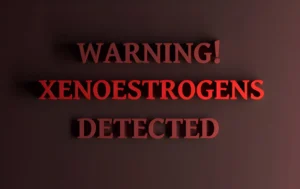Have you ever had that gut-wrenching feeling like something terrible is about to happen, but you can’t quite put your finger on what it is? This unsettling sensation, often referred to as a feeling of impending doom, can feel overwhelming and distressing. You might find yourself wondering why these intense feelings arise, and more importantly, how to deal with them when they do. The sensation of impending doom is not just in your head—it’s a sign that something deeper is going on, particularly concerning anxiety. Anxiety’s warning signs often manifest in these types of emotional responses, signaling that your mind and body are trying to tell you something.
In this blog post, we’ll dive into what impending doom feelings are, why they happen, and how they relate to anxiety. We’ll also explore how you can address these feelings, manage anxiety, and regain control over your emotional health.
Understanding the Feeling of Impending Doom
So, what does it mean to feel like doom is impending? It’s that unmistakable sense that something bad is on the horizon, even though you have no concrete evidence to support it. It’s as if your brain is sending out warning signals without explaining exactly what the threat is. These feelings might come out of nowhere and can sometimes lead to a sense of panic or unease, often accompanied by a racing heart, shortness of breath, or a cold sweat. In some cases, it can feel so real that it leads people to worry about a physical illness or life-threatening condition.
It’s easy to dismiss these feelings as irrational or even overwhelming. However, they are often tied to underlying anxiety. Anxiety has a sneaky way of presenting itself in ways that don’t always seem to make sense. It can trick your brain into feeling like a crisis is about to happen, even if there is no immediate danger.
How Anxiety’s Warning Signs Play a Role
Anxiety often communicates with us through physical and emotional symptoms. These “warning signs” are signals from your body that something is out of balance or that you might be experiencing heightened stress. Some of the most common symptoms of anxiety include:
- Increased heart rate
- Shortness of breath
- Sweating
- Nausea
- Dizziness
- Muscle tension
- Restlessness
- A sense of impending doom
While it may feel like the world is about to fall apart, these feelings are a normal (though uncomfortable) part of the anxiety experience. Anxiety is often rooted in your subconscious mind, which tends to overestimate potential dangers and perceive threats where there may be none. This is why people often feel like something terrible is about to happen, even when there’s no apparent reason to believe that.
Why Do We Feel Like Something Bad Is Coming?
It’s important to understand that the feeling of impending doom is not a sign that something terrible will happen—it’s simply your body’s response to stress and fear. This response is deeply ingrained in our biology. Our brains are wired to focus on potential threats, which was a survival mechanism that helped our ancestors avoid danger.
When you experience anxiety, your body’s “fight or flight” response is triggered. Your brain signals for the release of adrenaline and cortisol, hormones that prepare you to react to a perceived threat. The result can be a heightened state of alertness, which in some cases translates to the feeling that something catastrophic is about to occur. The more your body becomes accustomed to these stress signals, the more frequently you might experience these feelings of doom.
Additionally, this sense of dread can be related to certain life circumstances or past experiences that trigger anxiety. For example, someone who has had a traumatic experience in the past may find themselves constantly on edge, feeling like something bad is about to happen.
The Impact of Chronic Anxiety
Chronic anxiety can cause frequent episodes of impending doom. When you experience anxiety over a prolonged period, your brain becomes hypersensitive to threats, even in situations where there’s no clear danger. This chronic stress can lead to further physical and emotional distress, which may exacerbate the sensation of impending doom.
While anxiety is a natural stress response, chronic anxiety can interfere with daily life. It can affect relationships, work, and overall well-being. When the feeling of impending doom becomes a recurring theme, it may indicate that your anxiety is not being properly managed or addressed.
Coping Strategies for Anxiety and the Feeling of Impending Doom
If you’ve experienced the sensation of impending doom, it’s important to recognize that it’s a sign of anxiety that can be managed. Here are some strategies to help you cope:
Grounding Techniques: Grounding exercises are a powerful tool for interrupting the spiral of anxiety. Focus on your surroundings, take deep breaths, and try to bring your attention back to the present moment. One popular technique is the 5-4-3-2-1 method, where you identify five things you can see, four things you can touch, three things you can hear, two things you can smell, and one thing you can taste.
Breathing Exercises: Deep breathing is one of the most effective ways to calm the nervous system. Slow, controlled breaths can help bring you back to a state of calm. Try inhaling for four counts, holding for four counts, and exhaling for four counts.
Mindfulness and Meditation: Mindfulness helps you become more aware of your thoughts and feelings without judgment. Meditation can help train your brain to focus on the present moment and reduce the intensity of anxiety.
Exercise: Physical activity releases endorphins, the body’s natural mood boosters. Exercise can reduce the intensity of anxiety and prevent it from escalating into feelings of doom. Whether it’s a brisk walk, yoga, or a high-intensity workout, moving your body can help ease anxiety.
Seek Support: Talking to someone you trust can be a great way to process your feelings. You may find that sharing your thoughts with a friend, family member, or therapist helps you feel less alone in your experience.
Professional Help: If your anxiety is causing significant distress or if the feeling of impending doom is interfering with your daily life, consider seeking professional help. Cognitive Behavioral Therapy (CBT) is a common approach for managing anxiety. Therapy can help you reframe negative thought patterns and provide you with tools to cope with anxiety in a healthier way.
Frequently Asked Questions (FAQs)
Q: What causes the feeling of impending doom?
A: The feeling of impending doom is often a symptom of anxiety. It can occur when your body’s “fight or flight” response is triggered due to stress, fear, or unresolved emotional issues. Your brain becomes hyper-alert to perceived threats, leading to a sense that something bad is about to happen.
Q: Is it normal to feel like something terrible is about to happen?
A: Yes, it’s normal for anxiety to trigger the feeling of impending doom. This is especially common in people who experience chronic anxiety. While the feeling can be distressing, it doesn’t mean that something terrible is actually going to happen.
Q: How can I stop feeling like something bad is going to happen?
A: Managing anxiety through techniques like deep breathing, mindfulness, exercise, and therapy can help reduce the feeling of impending doom. Regularly practicing these strategies can train your mind to respond more calmly to stress and anxiety.
Q: When should I seek professional help for anxiety?
A: If your anxiety is affecting your daily life, relationships, or overall well-being, it’s a good idea to seek help from a mental health professional. Therapy, such as Cognitive Behavioral Therapy (CBT), is highly effective in treating anxiety.
Conclusion
The feeling of impending doom, while unsettling, is a natural response to anxiety and stress. By recognizing it as one of anxiety’s warning signs, you can begin to address the root causes and take proactive steps to manage your mental health. Whether through self-care techniques, exercise, or professional help, you can regain control over your anxiety and reduce the frequency and intensity of these distressing feelings. With the right support and tools, it is possible to face these challenging emotions head-on and live a more peaceful, balanced life.
Also Read-Streamlined Payment Management for Healthcare Practices








